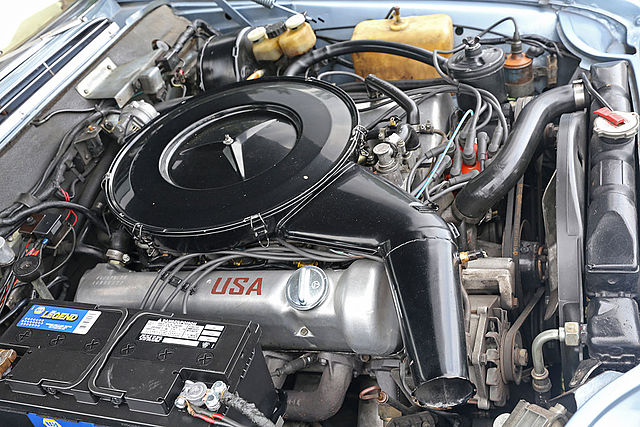
Photo by Mr.choppers (Wikimedia Commons)
Are you hoping that your Mercedes-Benz will make it to 200,000 miles? Don’t worry; Mercedes actually boasts of its longevity with its High Mileage Award, which has been given out since the 1960s, and has even reported some cars clocking in at more than a million miles (or 1,610,000 kilometers). The brand gives out cool badges, which are often sported on the grille of the car. There have been many reports of high-mileage success, but it’s hard to tell what the secrets of good upkeep are. A 200,000-mile Mercedes that’s been maintained well can drive better than an 80,000-mile Mercedes that’s not been kept well. Here are some of the things a driver should do to ensure that their car will reach at least the 200,000-mile mark.
Actually Change the Oil and Transmission Fluid Frequently
This may be a gross example, but what do you think your body would do if it didn’t have enough fluid in it? Your organs would dry up, and the whole body would slowly shut down due to dehydration. It’s functionally similar to when a car has not enough or bad oil: Parts rub up against each other needlessly, causing much faster wear and tear than most owners realize. This might seem like something superfluous to spend money on, but do buy high-quality oil and transmission fluid and change the fluids regularly.
Replace the Usual Wear-and-Tear Parts (Before They Cause Big Problems)
These are some of the types of parts that you’ll need to replace no matter what. You can get aftermarket parts for a Mercedes online that are cheaper without being cheaply made for a lot of these needs. Frequently check these areas of your vehicle and expect to replace the following before you reach 200,000 miles:
- Filters (oil filter and air filter)
- Brake pads, rotors, and sometimes calipers
- Wiper blades
- Battery and sometimes electric fuses
- Spark plugs
- Belts (including the serpentine belt and timing belt)
- Alternator
- Pumps (fuel pump and water pump)
- Muffler
- Shocks and struts
Avoid Suspension Issues by Rotating and Inflating Tires
Take care of your tires is like taking care of your feet: If you don’t, you’ll see big problems after aging. Frequently check your tires, and make sure your mechanic can get your car into the air often enough to see any suspension issues before they get out of hand. Making sure your car is held up correctly can avoid a lot of costly repairs. Pay special attention to suspension bearings and bushings, as these will sometimes need to be replaced, too.
Read the Manual and Follow the Maintenance Schedule
Granted, people read the owners’ manual of their vehicle about as often as they read the license agreements when they’re about to download software, but the owners’ manual can really help an owner know the ins and outs of their car and what to expect. Apart from telling you what warning lights mean, the manual may also outline a maintenance schedule for you to follow. If you buy a used car with the manual not included, try to find it online.
Be Aware of Recalls
For those with newer vehicles hoping to get to the 200,000-mile mark in their Mercedes, it’s important to watch out for recalls. Mercedes makes amazing cars, but they still outsource much of their parts production. They weren’t unaffected by the Takata airbags that affected almost every other major car company, for instance. So sometimes, their OEM parts require recalls. For your own safety and for the longevity of your vehicle, pay attention when there are issues and get new parts when necessary.
Listen, Smell, and Look for Warning Signs
Don’t ignore warning lights, bad smells coming from under the hood (which may be indicative of major issues with your radiator or other significant parts), sudden, strange sounds (which may be a sign of many types of mechanical problems), or spots on your driveway (which may be a symptom of various types of leaks). Investigate the sounds and smells one way or another, either by looking them up online, asking a friend, or simply referring to your mechanic. If you can’t figure it out, don’t assume it will go away. It will likely get worse. Have an expert check it out.
Keep a Clean, Waxed Exterior
Part of the reason Cuba has so many functional classic cars, besides the trade embargo, of course, is the fact that it has such a reasonable climate. The country doesn’t have to deal with the constant barrage of salt and bad weather, keeping the exteriors and undercarriages of the locals’ vehicles clean and rust-free. If you’re living anywhere north of there, the best thing to do is to give your car some love. Wash it, wax it, and most importantly, make sure the undercarriage is clean and protected. This will not only make your car’s paint job and accessories look nice but also help to avoid the degeneration of parts from rust.

